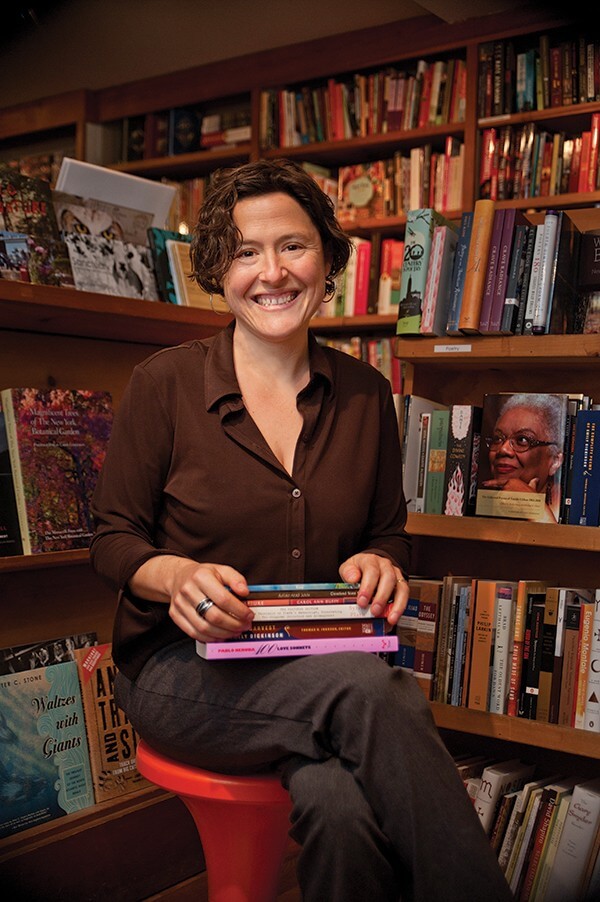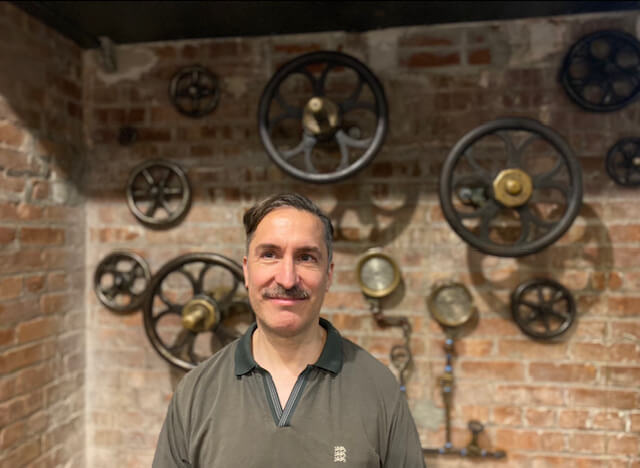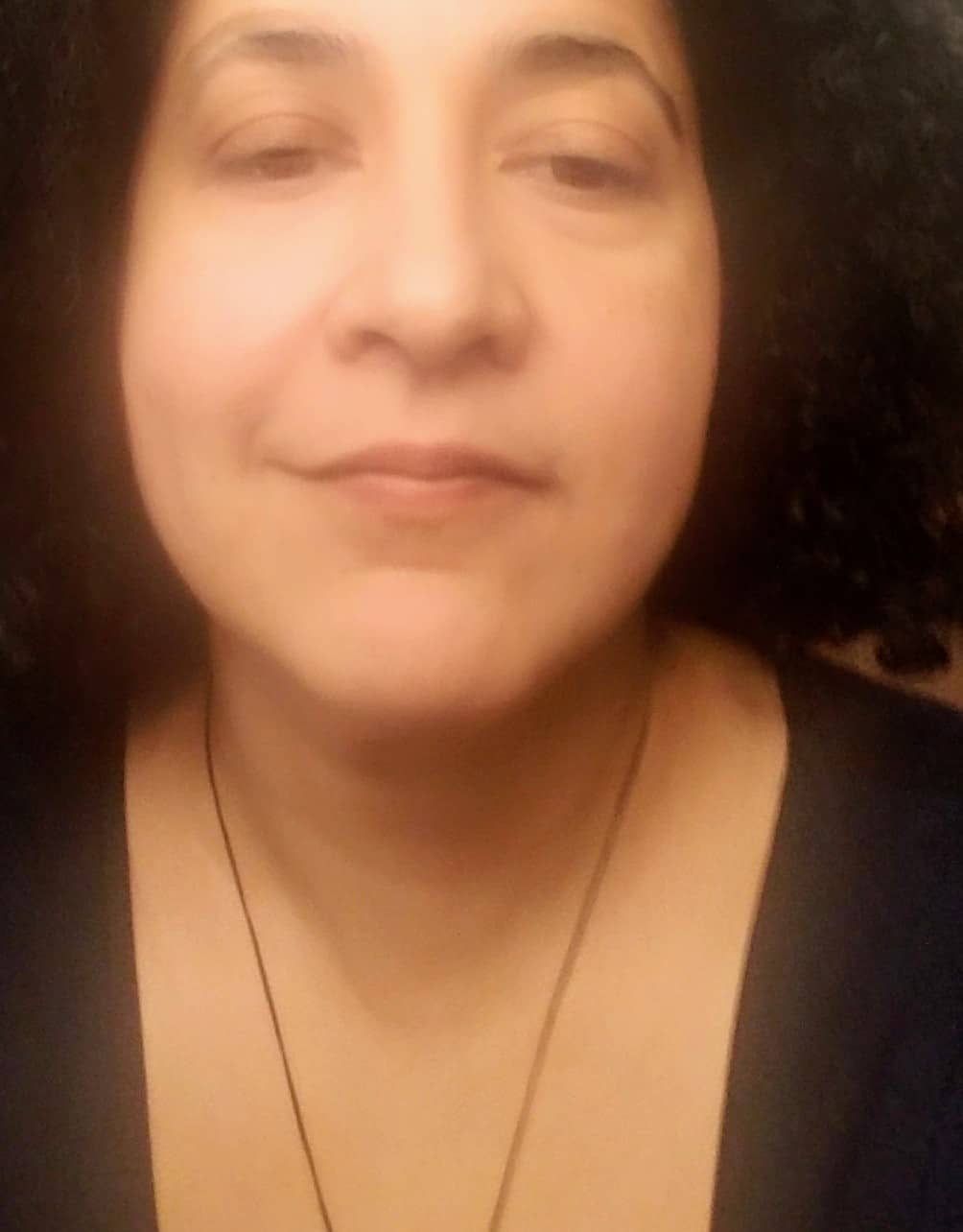
Interview
What If Every Cow Wants to Save Her Own Life?
John Brantingham interviews Gretchen Primack
Gretchen Primack is an extraordinary poet not only because she has a mastery of the form and her language but also because she understands what it is to be human and to be kind. I picked up her book Kind after having read her poem in the new book New Voices: Contemporary Writers Confronting the Holocaust, which is a collection of writers and poets, all of whom have written new work about the Holocaust, so as to update the lessons and understanding of the event from a twenty-first-century perspective.
Primack seems the perfect person to help us re-understand the event. She is constantly searching for ways to find new paths toward kindness. In her work, she confronts animal cruelty, whether it is intentional or unconscious. She writes about the dehumanizing aspects of the prison industrial complex, and she looks at the effects of genocide and other similar events. To me, her work is about fighting our human tendency toward depersonalization. She is able to give agency and perspective to people and animals. I wanted to get her perspective then on the work she has done in Kind and New Voices: Contemporary Writers Confronting the Holocaust, both of which are exceptional collections.
John Brantingham: As I wrote above, I see your work as a fight against depersonalization because when you are able to present living creatures as individuals, and when you are able to show that they have emotion and personal meaning, it makes cruelty that much more difficult. Your readers, at that point, need to at least be conscious of what they are doing to their fellow beings. Would you agree with that assessment, or is there something more complex than what I’m describing that happens in your work?
Gretchen Primack: I agree utterly! Individuality is key. It’s so easy to desensitize if we’re perceiving a nameless, faceless mass. We can desensitize to, say, groups of humans at the southern border of this country; refugees approaching Europe in boats; incarcerated men in Mississippi—and we can desensitize to hundreds of thousands of chickens in sheds and thousands of calves on a slaughter line. It’s science, not a bleeding heart, that tells us each of the individuals that make up each group I mention is a distinct personality. They deserve respect, and they deserve recognition of their individuality. It’s so clear that when we DO see individuals—the cow who jumps off the slaughter truck in Philadelphia and wins our sympathy; the new immigrant who saves someone’s life and wins our sympathy; the wrongly incarcerated man who is finally released and wins our sympathy—we are able to behave and think in a different way about those groups. What if we acknowledged the individuality first? What if we assumed that every cow wants to save her own life, every refugee is capable of adding value to her community? Would these groups even exist? And wouldn’t our planet be better off without them, without what causes them and the crises surrounding them?
John Brantingham: Your poem, “Body Boarding” in New Voices: Contemporary Writers Confronting the Holocaust, looks at a Jewish person aboard the St. Louis, which took European-Jewish refugees in 1939 first to Cuba, then to the United States and Canada, where they were denied entry in each case. They were returned to Europe eventually, where a quarter of them died in death camps. This seems to me to be one of the great moral failings, and it’s shocking that we allowed this to happen, but we have currently the relocation of immigrants and refugees in our time as a way of scoring political points on an opposition party. As I read this, I thought of how we are still doing this today. Was that intentional commentary on your part on the state of the world today, or is that it was just so similar that it came to my mind naturally?
Gretchen Primack: You’ve got a good ear/eye/brain there, John! Intentional. As you’ll gather from my answer above, I see the deficiencies in our species as related, and at least partially related to power. Who has it, and how do they wield it? Who doesn’t, and how do they try to get it? The idea of being better than is a powerful poison. If I don’t have power in my community, and someone tells me that I’ll have even less if foreigners come and “take our jobs,” I’ll see that as a threat, to my livelihood and to my idea of “I’m better than.” If powerful people think that more strong voices coming into a country could depose them, they’ll see that as a threat, to their power and their idea of “I’m better than.” The woman who serves as speaker in “Body Boarding” is utterly powerless, reduced to a blank body. Who knows who she could have been if she’d been respected and allowed sanctuary. But if she was seen as a threat, she’d have been turned away—and she was.
John Brantingham: Now, I know that you are sensitive to the world and what we are doing to each other these days. I wonder if you have insight into whether and to what degree we have grown closer to compassion since the Holocaust. My worry is that evil is never cured, but that it shifts, so it becomes difficult to see in the present.
Gretchen Primack: I wish I could say that the moral arc of the universe bends toward justice, but I don’t see that. I see us behaving in disastrous ways, ways that threaten not only misery in our homes, communities, societies, and countries but our very planet. I do see many people actively working to end this misery, but I see more people either ignoring the issue or continuing what they see as a benefit to themselves as more important than these issues. So while I don’t know the exact definition of evil, I do think that apathy and selfishness guide the course of most humans, to the detriment of our and other species. And I don’t see that changing. That said, I feel a peace about doing what I can in my corner, living as close to a value-driven life as I can, taking other species and humans into consideration as I make decisions.
About Gretchen Primack

Photo by Deborah DeGraffenreid
Gretchen Primack is a poet, educator, and indie bookseller living in New York’s Hudson Valley. She has taught and/or administrated with prison education programs (mostly college) since 2006. She’s the author of three poetry collections: Kind (Lantern Publishing), which explores the dynamic between humans and other animals in our time and place; Visiting Days (Willow Books), which imagines a maximum-security men’s NYS prison like the ones where she’s taught; and Doris’ Red Spaces (Mayapple Press), a more personal collection; along with a chapbook, The Slow Creaking of Planets (Finishing Line). She co-wrote The Lucky Ones: My Passionate Fight for Farm Animals with Woodstock Farm Animal Sanctuary co-founder Jenny Brown (Penguin Avery). Her poetry publication credits include The Paris Review, Prairie Schooner, Ploughshares, FIELD, Poet Lore, The Massachusetts Review, The Antioch Review, New Orleans Review, Rhino, Tampa Review, and many others journals and anthologies. She’s also worked at the renowned indie bookstore The Golden Notebook for many years. Gretchen is a passionate advocate for the rights and welfare of non-human animals and lives with several of them, along with a beloved human named Gus.
About John Brantingham
 John Brantingham was Sequoia and Kings Canyon National Parks’ first poet laureate. His work has been featured in hundreds of magazines, Writers Almanac and The Best Small Fictions 2016 and 2022. He has nineteen books of poetry, nonfiction, and fiction including Life: Orange to Pear, Kitkitdizzi, and Days of Recent Divorce. He is the founder and general editor of The Journal of Radical Wonder. He lives in Jamestown, NY.
John Brantingham was Sequoia and Kings Canyon National Parks’ first poet laureate. His work has been featured in hundreds of magazines, Writers Almanac and The Best Small Fictions 2016 and 2022. He has nineteen books of poetry, nonfiction, and fiction including Life: Orange to Pear, Kitkitdizzi, and Days of Recent Divorce. He is the founder and general editor of The Journal of Radical Wonder. He lives in Jamestown, NY.



